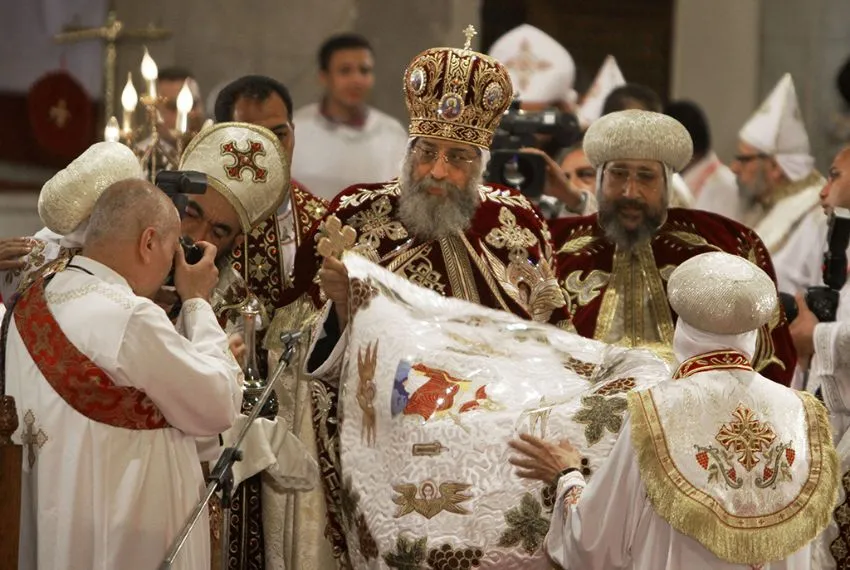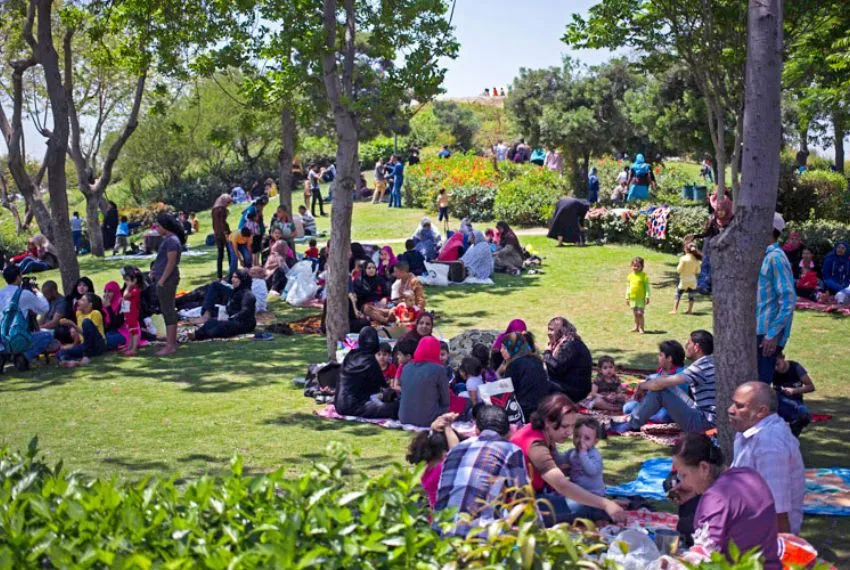Easter in Egypt is a unique and significant occasion for the nation’s Christian population because it combines age-old customs, colorful festivals in Egypt, and intense religious devotion.
The most well-known ancient Egyptian custom is Sham El-Nessim, often known as Easter, which in Egyptian means inhaling the fresh breeze. To commemorate the official start of summer, people would color their hard-boiled eggs the day before, stuff them full of green Egyptian dishes and salted fish, and go to the parks.
Sham El-Nessim is dependent on the climate and topography of the Nile Valley, it has a longer history than many other feasts. Moreover, due to its many and dynamic social responsibilities. According to the Egyptian Archive of Folk Life and Folk Traditions, spring was the period of the Show in ancient Egypt. It had a connection to the Osiris religion as well, which predicted an afterlife.
Dive into Egypt Easter Tours to discover rich history and culture with our exclusive Egypt vacation packages. Uncover Easter traditions in Egypt hidden gems and create memories to last a lifetime.

Easter traditions in Egypt
- Church Services: Easter in Egypt is a major celebration marked by a variety of rites and traditions that have been handed down through the years. Easter is a very religious occasion, with church services being performed on Sunday and Monday. Most individuals in the community attend these services, and many of them dress to impress by bringing flowers and candles to decorate the church.
- Easter eggs: Decorating and exchanging Easter eggs is one of Egypt’s most cherished Easter customs. Eggs are intricately adorned and colored in vibrant colors; some families even use wax to make quite complex patterns. The eggs are thought to stand for fresh life and to signify Jesus’ resurrection. In addition to being employed in the age-old game of egg cracking, in which two players try to crack each other’s eggs by tapping them together, these vibrant eggs are presents for loved ones.
- Family Gatherings: Easter in Egypt is a time when family get together to celebrate, and feasts and get-togethers play a big role in the festivities. Egypt Family tours members make the long trip to participate in the celebrations, which feature a wide variety of mouthwatering traditional fare. ‘Feseekh,’ a salted and fermented fish dish served with bread and onions, is a typical Easter traditions in Egypt meal. Since ancient times, this meal has been a feature of Egyptian Easter rituals.
- Processions on Palm Sunday: The week before Easter, on Palm Sunday processions are held in the streets commemorating Jesus’ triumphant entry into Jerusalem with people bearing palm branches. These processions involve men, women, and children walking through the streets while singing and chanting hymns, frequently portraying scenes from Jesus’ life.
- Fasting and Feasting: Egyptian Christians undertake a period of fasting during Lent, which precedes Easter, just as many other Christian cultures. This means giving up some meals and activities; the most devoted believers fast for 50 days straight. Easter Sunday marks the conclusion of the fast and is marked by a lavish feast with no dietary restrictions.
- Easter Pastries & Sweets: Easter in Egypt is associated with a range of delectable pastries and sweets in addition to customary cuisine. During this period, “kahk,” a delicious pastry stuffed with nuts or dates, is a need. ‘Maamoul,’ which are little butter cookies stuffed with nuts or dates, and ‘qatayef,’ which are pancake-like treats stuffed with cream and topped with syrup, are two more well-liked desserts.
- Easter Monday Picnics: Families get together for picnics and outdoor activities on Easter Monday. After the hectic holiday celebrations, people look forward to this day to unwind and spend time with their loved ones. Families spend the day taking advantage of the nice weather and one other’s company by packing traditional foods and desserts, along with activities for the kids to play.
Easter food and traditional dishes in Egypt
- Feseekh is a well known Easter delicacy in Egypt. This fermented mullet fish has a pungent aroma and a unique flavor that may not be for everyone. The preparation involves salting the mullet fish for several weeks to achieve its distinct taste.
- Renga is a different kind of preserved fish, being smoked herring rather than fermented mullet. It offers a more subtle taste compared to feseekh, making it a favorite among those who prefer a less intense flavor in their fish.
- Fattah This delicious meal is a fundamental part of Egyptian cuisine and steals the show at Easter traditions in Egypt gatherings. Fattah is a scrumptious dish consisting of crunchy pita bread, rice, tender meat (typically lamb or beef), a creamy sauce, and crispy fried onions. It’s a delightful and fulfilling dish that is ideal for a festive feast.
- Koshari a delicious vegetarian meal made with rice, lentils, chickpeas, and vermicelli noodles topped with crunchy fried onions and a zesty tomato sauce, is widely considered one of the most beloved dishes during Easter in Egypt. This flavorful dish has become a staple in Egyptian cuisine and is often enjoyed during special celebrations like Easter.

Tips while celebrating Easter in Egypt
Attend Easter Mass or Service:
If you’re a Christian, you may get a great deal of spiritual fulfillment by going to one of Egypt’s ancient churches for Easter Mass or service. In particular, Coptic Orthodox churches perform ornate rituals during Holy Week, which culminates on Easter Sunday.
See Historic Churches:
Egypt is home to a large number of historically significant ancient churches. Take into consideration going to places of worship like the Monastery of Saint Anthony in the Eastern Desert, the Saint Mark’s Coptic Orthodox Cathedral in Alexandria, or the Hanging Church (Saint Virgin Mary’s Coptic Orthodox Church) in Cairo.
Discover Coptic customs:
Gain knowledge about the Easter customs of the Coptic people, which may involve symbolic rites, special prayers, and fasting.
Investigate Local marketplaces:
Egyptian marketplaces in Easter come alive with merchants offering Easter traditions in Egypt food and sweets. Take a look at the celebratory treats available in local marketplaces like Souq Al-Hamidiyya in Alexandria or Khan El Khalili in Cairo, such Feseekh, colorful eggs and ka’ak.
Participate in Festive Gatherings:
Family gathering and shared meals are common Easter traditions in Egypt. Accept the chance to enjoy homemade Egyptian food and first-hand Egyptian hospitality if you’re invited to celebrate Easter with a local family.
Take Part in Festive Activities:
Keep an eye out for Easter celebrations and events put on by local churches, towns, or cultural organizations. Easter processions, musicals, and cultural displays showcasing Egypt’s rich history are a few examples of these.
Discover Egypt’s Historical Sites:
Make the most of your Egypt day tours trip by seeing the amazing historical and monuments sites. During your Easter break, there are plenty of breathtaking sites to see, such the Giza Pyramids and the temples of Luxor and Karnak.
Respect Local Traditions and Customs:
When celebrating Easter, keep in mind to show respect for Egypt’s religious and cultural traditions. When attending places of worship, dress modestly, pay attention to regional traditions, and consider proper conduct in public areas.
Savor Egyptian food:
During your Easter celebrations, indulge in the delectable food of Egypt. Try traditional meals like koshari, falafel, ful medames, and grilled meats prepared in the Egyptian way, whether you’re eating at a neighborhood restaurant or cooking for yourself.
Remain Up to Date:
Remain informed about any changes to local laws or travel warnings that may impact your Easter plans in Egypt. Remain up to date on available transportation, attraction opening and closing times, and any special activities taking place while you’re there.

